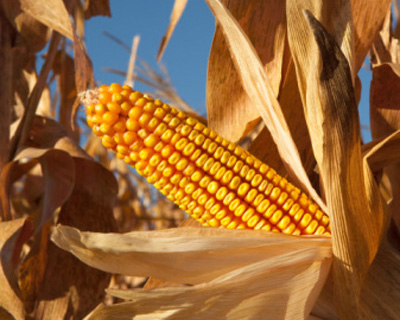The fear that Belize’s indigenous corn, which was first developed by the ancestors of Belize’s Maya population, will be threatened by the introduction of genetically modified (GM) crops in this tiny Caribbean country was just one of many concerns raised during a recent “GMO Awareness Month”, according to Belizean environmentalists at Chaa Creek.
Brion Young, a licensed naturalist guide and assistant manager of Chaa Creek’s Belize Natural History Centre said that environmental, health, legal, ethical and other issues were also discussed during the campaign, which ran between March and April. As a result, more Belizeans are now questioning whether GM corn crops should be introduced into the country’s fragile ecosystem, which boasts huge tracts of unspoiled rainforest fed by pristine rivers and where over 36% of the land remains under protection.
Mr Young pointed out that leaders of Belize’s indigenous Maya community, which makes up some 12% of the population, have for years expressed fears about the impact of GM corn on their maize crops, which are an essential part of the daily diet as well as an important cultural link.
“Reports from around the world indicate that pollen from GM crops can be carried up to eight miles by wind and even further by insects to infect neighbouring crops. In a tiny country like Belize, there are very legitimate concerns that genetically altered corn will wipe out strains of maize that the Maya have developed here over millennia.
“Imagine how the people whose ancestors were known as “The people of the Corn” and gave the world this vital food crop would feel about patented, corporate-owned crops threatening not only an important food source but thousands of years of culture and history?
“Maya corn is replenished for free each year, as it has for thousands of years, just by saving seed. GM corn, on the other hand, is sterile, which means farmers must buy new seed stock each season.
“In essence, the Maya gave the world corn for free, and now corporations want to patent and sell it back to them. We feel that there’s a terrible injustice there,” he said.
Mr Young said the GMO awareness month also highlighted important concerns about the health and safety of GM crops as new research reveals disturbing anomalies in laboratory animals fed GMOs.
Chaa Creek owner Mick Fleming began the award-winning eco resort with his wife Lucy over 30 years ago as a family farm and continues to oversee Chaa Creek’s Maya Organic Farm. He agrees that education is essential before the Government of Belize considers approving the introduction of GM crops.
“This is a very serious issue that warrants further study. Belize has one of the most pristine ecosystems in the world, and that is a national asset that we must continually monitor and protect. We simply can’t afford to roll the dice with our and our children’s future,” he said.
“Over the years I’ve gained tremendous respect for traditional Maya agriculture and how they fed huge populations for centuries with careful land management. To jeopardise that legacy without carefully examining all the risks and ramifications surrounding GM crops would be obscene,” he said.
The GMO Awareness month is a grassroots initiative organised by BAGMO, Belizeans Against Genetically Modified Organisms, a non-profit group composed of a cross section of the Belizean population.
BAGMO member Miriam DeShield, who with Denise Frank was instrumental in organising the awareness month, said that, “This technology has not been widely tested, is not approved in most developed nations and is openly rejected in much of the developing world.
“To encourage the importation of a controversial, possibly harmful technology which will certainly impact trade, environment and most probably health, without full, open consultation, and without legal issues resolved is unwise at best, and likely foolish.”
Mr Young praised BAGMO for helping to educate Belizeans of the potential risks while also allowing GMO proponents to air the potential benefits of GM foods.
“This has been a well-balanced campaign that’s seeing a wide range of views aired. The companies wishing to sell GM seeds in Belize have had their say, as well as those people adamantly opposed to GMOs, and that is a healthy approach.
“Belizeans are a literate, well educated people, and I’m confident that once they have access to all the information, and the time to carefully consider it, they’ll make the best decisions, he said.
“This campaign has always been about people, not profits,” Mr Young said.
